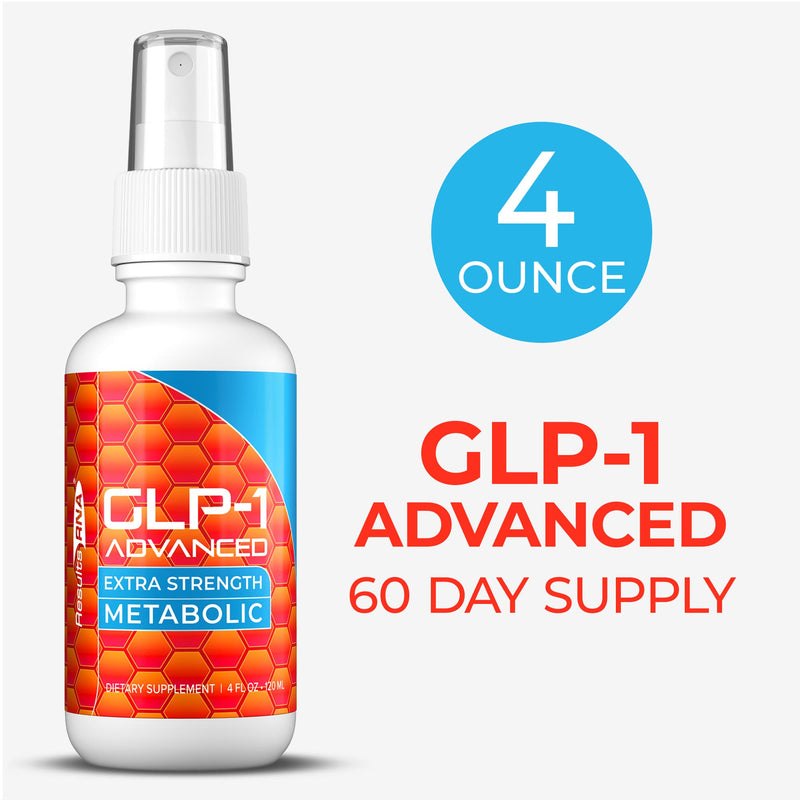Subscription Price: (10% Off)
Berberine: Nature’s Support for Metabolic Health & GLP-1 Enhancement
Berberine is a bioactive plant compound increasingly highlighted in the health and wellness space for its metabolic benefits. It is often discussed in tandem with GLP-1 support strategies, and its inclusion in an advanced supplement formulation may enhance its therapeutic potential. In this article, we explore what berberine is, how it works, the science backing it, recommended usage, safety considerations, and why a “GLP-1 Advanced Extra Strength” formulation including berberine may appeal to health-conscious consumers.
What Is Berberine?
-
Definition & Origins
Berberine is an alkaloid found in several plants such as Berberis species (barberry, goldenseal), Coptis, and Hydrastis. It has a long history in traditional Chinese and Ayurvedic medicine. -
Chemical Profile & Challenges
While berberine demonstrates promising effects, it suffers from low bioavailability; less than 1% is typically absorbed orally due to extensive first-pass metabolism and efflux by transport proteins.
How Does Berberine Work?
Berberine’s mechanism is multi-targeted, acting on several metabolic pathways:
-
Activation of AMPK (AMP-activated protein kinase)
One of the most widely cited actions is its ability to activate AMPK, a central energy sensor in cells. Activation of AMPK supports improved glucose uptake, insulin sensitivity, and lipid metabolism. -
Modulation of Gut Microbiota
Berberine can influence gut bacterial composition, reduce metabolic endotoxemia, and support metabolic homeostasis. -
Effects on Fat Cells & Adipogenesis
It may inhibit the differentiation of new fat cells (adipogenesis) and promote lipolysis (fat breakdown). -
Support of GLP-1 Secretion (in Animal Studies)
Some animal research indicates that berberine may stimulate secretion of GLP-1 (glucagon-like peptide-1), a hormone that helps regulate appetite and insulin secretion.
However, it’s important to note that while these effects are promising in lab models, human evidence remains limited and more clinical studies are needed.
Clinical Evidence & Metabolic Benefits
Blood Sugar & Type 2 Diabetes
-
Multiple human trials have shown that berberine may reduce fasting blood glucose, postprandial glucose, HbA1c (a long-term blood sugar marker), and improve insulin resistance. One pilot study found that berberine’s effects were comparable to metformin in newly diagnosed type 2 diabetes patients.
-
Some trials also showed benefit on lipid profiles (reducing LDL cholesterol, triglycerides) alongside glucose improvements.
Weight Loss & Body Composition
-
Meta-analyses and smaller human studies suggest berberine may produce modest reductions in body mass index (BMI), waist circumference, and body weight over 8–24 weeks.
-
A 2022 review of anti-obesity pharmacology highlighted berberine’s multimodal effects on fat metabolism, adipogenesis inhibition, and energy expenditure via mitochondrial pathways.
-
Still, results are not dramatic and should be viewed as adjunctive rather than replacement of other healthy lifestyle elements.
Heart & Cardiovascular Health
-
Berberine may exhibit anti-inflammatory and antioxidant properties.
-
Some studies have observed improvements in cholesterol, triglycerides, and even possible beneficial effects on endothelial function (blood vessel health).
Other Potential Benefits
-
Emerging research suggests neuroprotective effects, anti-aging mechanisms, support in liver health, and beneficial influences on oxidative stress.
Why Include Berberine in “GLP-1 Advanced Extra Strength” Formula?
A supplement marketed as “GLP-1 advanced extra strength” aims to support metabolic pathways similar to GLP-1 (glucagon-like peptide-1), focusing on blood sugar control, insulin sensitivity, and appetite regulation. Here’s how berberine complements that:
-
Synergy with GLP-1 Signaling
Since berberine may modestly support endogenous GLP-1 secretion (at least in animals) and improve insulin sensitivity, it can act as a supporting metabolic agent in concert with GLP-1–based strategies rather than replacing them outright. -
Multi-mechanistic Approach
Because berberine hits multiple metabolic targets (AMPK, gut microbiota, lipid metabolism), it can fill gaps that GLP-1–centric approaches might not fully address. -
Enhanced Strength
Using a higher potency (or optimized delivery formulation) can help overcome berberine’s bioavailability limitations—making it more effective in a specialized product. -
Appeal to Natural / Botanical Supplement Consumers
Many users prefer botanical or non-pharmaceutical adjuncts. Including berberine signals a scientifically backed “natural” support element.
Conclusion
Berberine is an intriguing botanical compound with multi-targeted metabolic actions that complement many of the pathways leveraged by GLP-1–based strategies. While it does not replace prescription GLP-1 medications, its inclusion in an advanced, high-strength supplement formula offers supporting benefits—especially in glucose regulation, insulin sensitivity, lipid metabolism, and possibly appetite control. However, users should approach with realistic expectations, monitor effects, and always consult healthcare professionals, particularly if combining with other medications or in special health conditions.



















